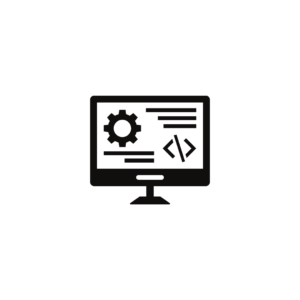Description
An Advanced Diploma in Operation Management is designed to develop the skills and knowledge necessary for effective management of operations within various organizations. This program typically focuses on efficiency, productivity, quality control, and the strategic management of operations processes.
Course Details:
Duration: Typically 1 to 2 years, depending on the institution and the mode of study.
Eligibility: A high school diploma or equivalent is generally required; some programs may prefer applicants with experience in business or management.
Mode of Study: Available in full-time, part-time, or online formats, combining theoretical coursework with practical exercises.
Curriculum:
The curriculum for an Advanced Diploma in Operation Management usually includes various key components:
1. Introduction to Operations Management
Fundamentals of Operations Management: Understanding the role and significance of operations in organizations.
Operations Strategy: Developing strategies that align operations with overall business goals.
2. Process Analysis and Improvement
Process Mapping Techniques: Tools for visualizing and analyzing workflows and processes.
Lean Principles: Introduction to lean methodologies for process optimization and waste reduction.
Six Sigma: Understanding the Six Sigma framework for quality improvement.
3. Supply Chain Management
Supply Chain Concepts: Overview of supply chain principles, including sourcing, logistics, and distribution.
Inventory Management: Techniques for managing inventory levels and optimizing stock.
Supplier Relationship Management: Building and managing relationships with suppliers for better procurement outcomes.
4. Quality Management
Quality Assurance Techniques: Methods for ensuring products and services meet quality standards.
Total Quality Management (TQM): Principles of TQM and its implementation in organizations.
Statistical Process Control: Using statistical methods to monitor and control processes.
5. Project Management
Project Planning and Execution: Techniques for planning, executing, and monitoring projects effectively.
Risk Management: Identifying and mitigating risks that can impact project outcomes.
Agile Methodologies: Understanding agile project management principles and practices.
6. Capacity Planning and Facility Layout
Capacity Planning Techniques: Assessing demand and aligning production capacity accordingly.
Facility Layout Design: Designing efficient layouts for production and service facilities to enhance workflow.
7. Operations Research and Decision-Making
Quantitative Analysis: Applying mathematical and statistical methods for decision-making in operations.
Decision Support Systems: Utilizing technology and data analysis for operational decisions.
8. Sustainability and Ethics in Operations
Sustainable Practices: Understanding the importance of sustainability in operations and incorporating eco-friendly practices.
Ethical Considerations: Exploring ethical issues related to operations management and corporate responsibility.
Assessment:
Assessment methods may include:
Written Examinations: Testing knowledge of theoretical concepts and frameworks in operations management.
Practical Projects: Hands-on projects that require the application of operational strategies to real-world scenarios.
Group Work and Presentations: Collaborative assignments that encourage teamwork and communication skills.
Career Opportunities:
Graduates of an Advanced Diploma in Operation Management can pursue various roles, including:
Operations Manager: Overseeing daily operations to ensure efficiency and productivity.
Supply Chain Coordinator: Managing logistics and supply chain activities within organizations.
Quality Assurance Manager: Developing and implementing quality control programs to maintain standards.
Project Manager: Leading projects and managing teams to achieve operational goals.
Process Improvement Specialist: Analyzing processes and implementing improvements to enhance performance.
This advanced diploma program prepares students to be effective managers who can lead operational initiatives and drive organizational success. If you have more specific questions or need further information, feel free to ask!









